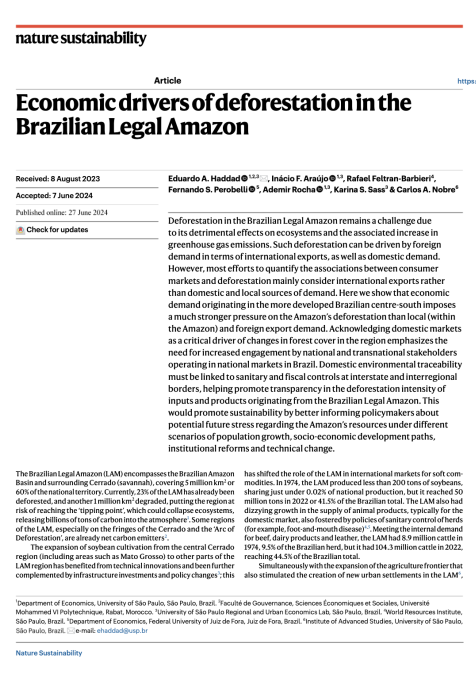Publications /
Paper in Academic Journals
This paper was originally published in nature.com
Deforestation in the Brazilian Legal Amazon remains a challenge due to its detrimental effects on ecosystems and the associated increase in greenhouse gas emissions. Such deforestation can be driven by foreign demand in terms of international exports, as well as domestic demand. However, most efforts to quantify the associations between consumer markets and deforestation mainly consider international exports rather than domestic and local sources of demand. Here we show that economic demand originating in the more developed Brazilian centre-south imposes a much stronger pressure on the Amazon’s deforestation than local (within the Amazon) and foreign export demand. Acknowledging domestic markets as a critical driver of changes in forest cover in the region emphasizes the need for increased engagement by national and transnational stakeholders operating in national markets in Brazil. Domestic environmental traceability must be linked to sanitary and fiscal controls at interstate and interregional borders, helping promote transparency in the deforestation intensity of inputs and products originating from the Brazilian Legal Amazon. This would promote sustainability by better informing policymakers about potential future stress regarding the Amazon’s resources under different scenarios of population growth, socio-economic development paths, institutional reforms and technical change.





